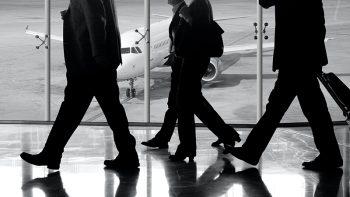
Amid rising pressure from the Canadian travel agency community, travellers, tourism stakeholders and the travel industry to ease PCR COVID testing requirements to enter Canada, it appears Ottawa may be about to change its stance.
The government has been urged to do away with testing altogether, or at least move from costly and prohibitive PCR testing to less expensive and quicker antigen testing.
After months of defending the costly and restrictive PCR testing practice that’s been blamed for throttling the return to travel for Canadians going abroad and for international visitors coming to Canada, Canada’s top doctor recently hinted that a policy change was afoot.
Just prior to the reopening of the American land border with Canada on 08NOV, as Open Jaw reported, Dr. Theresa Tam hinted that testing policies should be “re-examined,” and are “actively being looked at.”
Questioned again at a briefing last Friday, Tam committed even further to a change in border testing policies, telling media, “There will be further information to come."
Now, a CTV News report via the Canadian Press quotes federal Health Minister Jean-Yves Duclos saying late Tuesday that changes to border measures will be announced “very soon.”
The report adds that the negative molecular (PCR) COVID-19 test is “part of an order-in-council that will expire on Sunday” 21NOV.
And following a federal cabinet ministers’ meeting Tuesday, Duclos told media to expect a border announcement in the coming days.
"Nov. 21 is the time at which these orders-in-council must be renewed and with the renewal will come announcements," he said, adding that there would be an update for travellers "very soon."
It may not be all good news immediately for Canada’s travel advisors. The reports say Ottawa is not likely to simply drop the PCR testing requirement altogether on 21NOV.
Instead, changes to border entry / re-entry testing policies are expected to occur in phases, beginning with removing the test requirement for Canadians who are only outside the country’s borders for less than 72 hours.
Nonetheless, even the first step to relaxing one of the final remaining barriers to the return to travel is welcome news to Canada’s travel trade.






